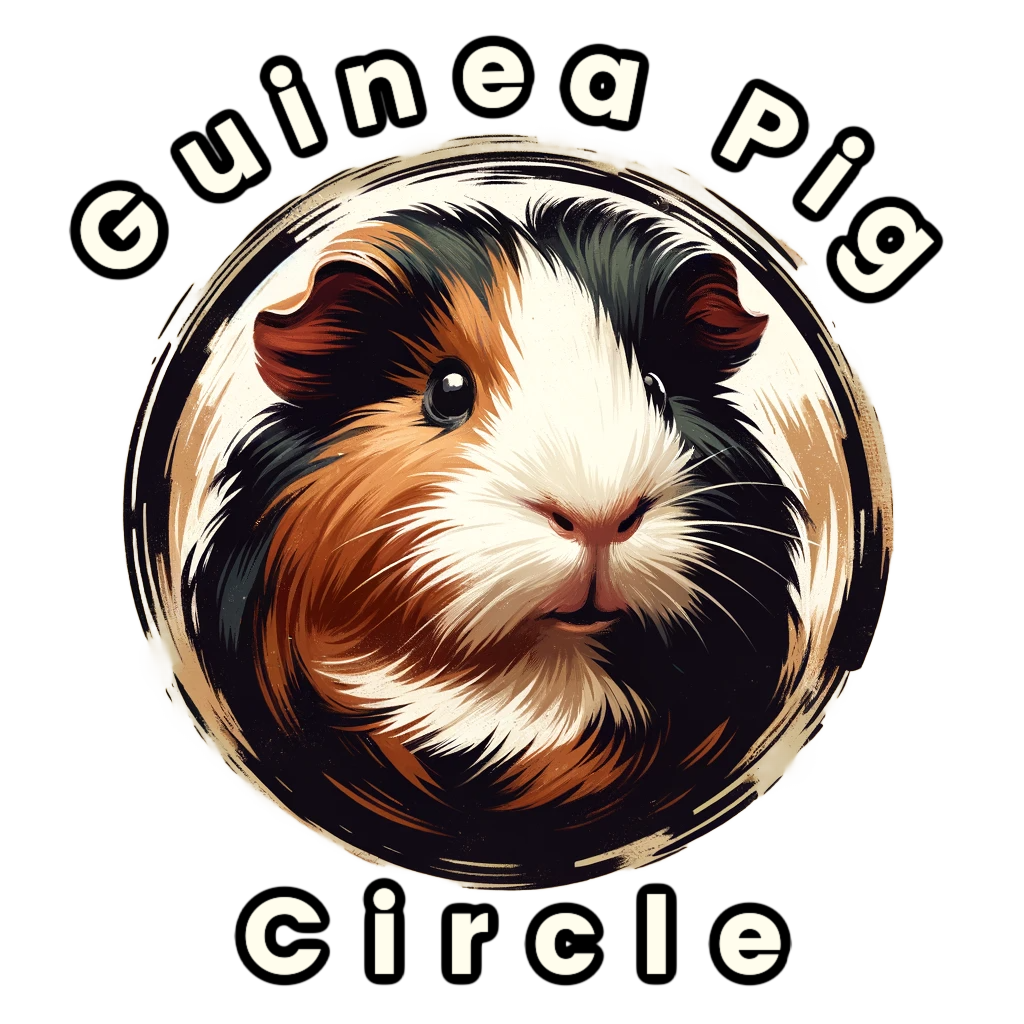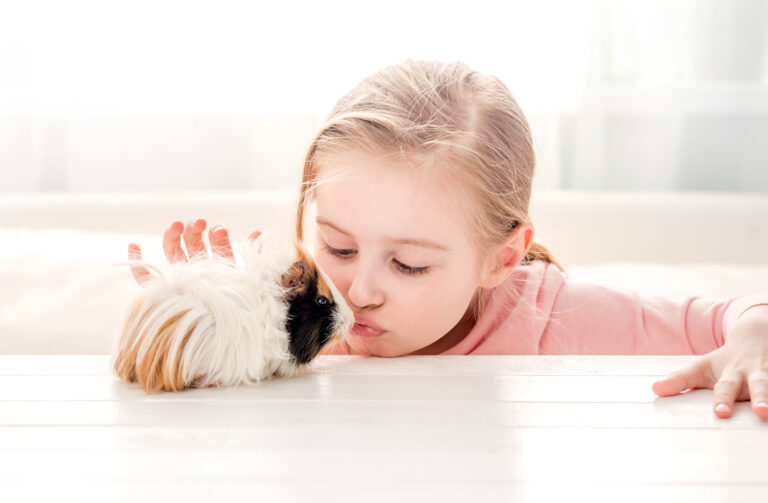Furry Frauds: Identifying Guinea Pig Adoption Scams
Understanding Adoption Scams
Guinea pig adoption scams is not normally a thought when considering adopting a guinea pig. Those adorable fuzzy little faces are undeniably irresistible, aren’t they? Small, gentle, and no need for leashes or long walks outside. A perfect picture of simplicity.
But here’s the twist in the tale: the world of guinea pig adoption isn’t always as cuddly and straightforward as it seems. You might think you’re one click away from adding a fluffy member to your family, but beware – it’s also a playground for scammers with a knack for exploiting the soft spot we all have for these tiny creatures.
Today, we dive into the shadowy corners of guinea pig adoptions. It’s a narrative not just about the joy these pets bring but also about the darker side of their journey to our homes. As we unravel the deceptive tactics of “Furry Frauds: Identifying Guinea Pig Adoption Scams,” let’s ensure that our love for these tiny friends doesn’t blind us to the risks lurking in the search for a new furry family member.
From the heartwarming tales of guinea pig companionship to the unfortunate reality of adoption scams, this post is a beacon of guidance. Let’s embark on this journey together, ensuring that every squeak in your home is from a genuinely happy, well-loved guinea pig, and not the echo of a scammer’s deceit.

Rachel’s Story
Section 2: Rachel’s Story – A Cautionary Tale in Guinea Pig Adoption
Rachel’s experience serves as a poignant reminder of the pitfalls that can entangle well-meaning animal lovers in the web of adoption scams. Her story began with a heart full of good intentions and a desire to provide a loving home to a guinea pig in need. Little did she know, her compassionate quest would soon encounter the murky waters of deceit.
It all started when Rachel stumbled upon a Facebook group titled “Guinea Pigs for Adoption and Rehoming Near Me.” The group appeared to be a beacon of hope, a place where guinea pig enthusiasts and those seeking to rehome their pets could connect and create happy endings. Rachel reached out, her heart set on introducing a new companion to her existing guinea pig, hoping they would form a bond that would enrich both their lives.
The group responded, presenting what seemed like a perfect solution. They claimed to be located in Frederick, MD, not too far from Rachel, and offered an almost idyllic picture. They said they’d bring not one but four guinea pigs to her home, allowing her pet to ‘choose’ a new friend. This is a clear red flag, a practice not uncommon in ensuring compatibility among these social animals. A fee of $55 was requested upfront, another clear red flag.
However, as the day of the meeting dawned, the situation began to unravel. Excuses were made, additional funds were requested under the guise of unexpected car trouble, and the veil of deception slowly lifted. Lauren, with her sharp instincts, realized the grim truth – she had fallen victim to a scam.
The emotional toll of this realization was immense.
Not only did Rachel lose her financial investment, but her trust in the process of pet adoption was deeply shaken. The incident left her grappling with feelings of betrayal and concern for the imaginary guinea pigs that were supposedly in need of a home.
Rachel’s story is not just a narrative of personal loss and deception; it serves as a powerful testament to the broader issue of adoption scams that plague the pet community. It underscores the need for vigilance, the importance of recognizing red flags, and the crucial role of reputable adoption channels in safeguarding the welfare of animals and the trust of potential adopters.
Let’s dissect the red flags in Rachel’s story, providing a framework for identifying similar scams. We’ll also equip you with strategies to navigate the adoption process safely, ensuring that your journey to welcome a new pet into your home is filled with joy, not jeopardy. Rachel’s experience, though disheartening, can pave the way for greater awareness and more secure adoption practices, protecting both animals and animal lovers from the shadows of deceit.

How to Spot a Scam
Section 3: How to Spot a Scam
Rachel’s unfortunate encounter sheds light on the red flags prevalent in pet adoption scams. Recognizing these signs is crucial:
- Upfront Payment Requests: Be wary of any group or individual asking for money before you’ve met the pet.
- Vague Details: Scammers often provide little information about the pet’s history, health, or current living conditions.
- Over-Eagerness to Rehome: A genuine rehomer will prioritize the pet’s welfare over a speedy transaction.
- Pressure Tactics: Scammers might use urgency or emotional stories to rush your decision.
- Lack of Transparency: Legitimate rehomers should be open to questions and willing to provide detailed responses.
- Absence of Legal Documentation: Adoption should involve paperwork for the pet’s history and health.
- Unwillingness to Meet: If someone is reluctant to allow a visit or meet in a neutral location, it’s a red flag.
- Requests for Additional Funds: Be cautious if asked for more money for unexpected issues like car troubles.
- Poor Communication: Scammers often have inconsistent or unprofessional communication patterns.
- No References or Reviews: Reliable rehomers usually have testimonials or references from previous adopters.
By keeping these pointers in mind, you can navigate the adoption process more safely and avoid falling prey to scams.
Safe Adoption Practices
Section 4: Safe Adoption Practices
Navigating the adoption process safely is critical in addition to your efforts in avoiding guinea pig adoption scams. Here are some guidelines to ensure a positive and secure experience:
- Visit the Pet in Their Current Home: Meeting the guinea pig in its existing environment offers insights into their health and living conditions.
- Seek Transparency and Open Communication: A trustworthy source will be forthcoming with information about the guinea pig’s history, health, and temperament.
- Ensure Proper Legal Documentation: Authentic adoptions involve paperwork, confirming the pet’s medical history and the transfer of ownership.
- Adopt from Reputable Sources: Consider shelters or rescue groups with a track record of responsible rehoming.
- Be Patient: Take your time to find the right pet, avoiding rush decisions under pressure.
- Prepare Your Home: Ensure you have a suitable environment ready for your new family member.
- Educate Yourself: Understand guinea pig needs, from diet to social interaction, before bringing one home.
- Ask for a Health Guarantee: Responsible rehomers or shelters often offer a health guarantee or a period for veterinary check-ups.
- Check References and Reviews: Look into the experiences of previous adopters to gauge the reliability of the rehoming source.
- Trust Your Instincts: If something feels off during the adoption process, it’s okay to step back and reassess.
By following these practices, you can significantly reduce the risk of falling victim to a scam.
Taking Action Against Scams
Section 5: Taking Action Against Scams
If you encounter a potential adoption scam, taking immediate action is crucial. Here’s what you can do:
- Report to Social Media Platforms: If the scam occurred online, report the profile or group to the platform for investigation.
- Contact Local Authorities: Inform local law enforcement or consumer protection agencies about the scam.
- Spread Awareness: Share your experience in local pet communities or online forums to warn others.
- Keep Documentation: Save all communication and receipts related to the scam as evidence.
- Consult Legal Advice: If you’ve suffered significant loss, consider seeking legal counsel for potential recourse.
- Engage with Pet Adoption Forums: Engage in discussions and share insights on reputable adoption sources.
- Monitor Your Accounts: If financial information was shared, monitor your accounts for unauthorized activity.
By taking these steps, you can help shut down scammers and protect the pet-loving community from similar deceit.
Alternatives to Online Adoption
In safeguarding yourself and your community from adoption scams, the emphasis lies in turning to reputable rescues or local animal shelters.
Establishing a direct, in-person connection with these organizations not only diminishes the risk of deceit but also allows you to meet and understand your potential new pet in a safe, transparent environment. These reputable sources often provide thorough health screenings, adoption counseling, and follow-up support, ensuring a responsible and well-informed adoption process.
An example of one of these incredible rescue organizations is Metropolitan Guinea Pig Rescue in the DC metro area. Look for a rescue near you and if there are none, opt for a local animal shelter.
By choosing to adopt from such trustworthy establishments, you support facilities that genuinely prioritize the welfare of the animals. Remember, your proactive choice reinforces the ethical rehoming of pets and helps in the collective effort to eradicate the shadow of scams from the world of pet adoption.
Conclusion to Guinea Pig Adoption Scams
Exploring alternatives to online adoption enriches the journey of welcoming a new pet. Local shelters and reputable rescue groups stand as pillars of integrity. Additionally, they offer a transparent and ethical path to finding your new furry friend. These establishments prioritize the well-being of guinea pigs, ensuring they are healthy, well-socialized, and ready for a loving home.
By adopting from these sources, you contribute to a larger cause, supporting facilities that provide care and rehabilitation for animals in need. Moreover, engaging with local shelters allows for a hands-on, personal experience, granting you the opportunity to meet and bond with potential pets in a secure setting.
